#Zhuangzi莊子
Explore tagged Tumblr posts
Text
孔子說:「先生品德那樣高尚,仍要藉用真理來調整自己的思想,不能忘言忘理,直接得道。這樣看來,古代人君子如果想得道,都免不了要調整自己的思想了? 」
老聃說:「那倒不然。泉水趵跳湧起,不借人工鑿引,自然形成,便是一例。至人不同於一般的君子,他不受外物的隔離,所以不需要調整自己的思想,就可以自然的得道了。天高,自然的高,難道需要調整?地厚,自然的厚,難道需要調整?日月光明,自然的光明,難道需要調整?”
─ 出自 : 莊子/南華經 第21章 田子方
“The murmuring of the water is its natural talent, not something that it does deliberately. The Perfect Man stands in the same relationship to virtue. Without cultivating it, he possesses it to such an extent that things cannot draw away from him. It is as natural as the height of heaven, the depth of the earth, the brightness of sun and moon.”
— Zhuangzi, The Complete Works of Zhuangzi, Watson tr. (Ch 21)
118 notes
·
View notes
Text
Yoda and the Story of Zhuangzi's wife
We've all heard Yoda's words about letting go in Revenge of the Sith,
"Careful you must be when sensing the future, Anakin. The fear of loss is a path to the dark side…Death is a natural part of life. Rejoice for those around you who transform into the Force. Mourn them, do not. Miss them, do not. Attachment leads to jealousy. The shadow of greed, that is."
It's one of the phrases most often used to call Yoda unfeeling, cold, mean to Anakin, etcetera, and I would like to look at the same lesson presented in nearly the same circumstance, but one with does not have Anakin, and therefore everyone's feelings about Anakin, plastered all over it.
The story of Zhuangzi's wife is a taoist one which was brought up to me as a point of comparison by @tai-feng:
莊子妻死,惠子弔之,莊子則方箕踞鼓盆而歌。惠子曰:與人居長子,老身死,不哭亦足矣,又鼓盆而歌,不亦甚乎。 Zhuangzi's wife died. When Huizi (his friend) went to convey his condolences, he found Zhuangzi sitting with his legs sprawled out, pounding on a tub and singing. "You lived with her, she brought up your children and grew old," said Huizi. "It should be enough simply not to weep at her death. But pounding on a tub and singing—this is going too far, isn't it?" 莊子曰:不然。是其始死也,我獨何能無概然。察其始而本無生,非徒無生也,而本無形,非徒無形也,而本無氣。雜乎芒芴之間,變而有氣,氣變而有形,形變而有生,今又變而之死,是相與為春秋冬夏四時行也。 Zhuangzi said, "You're wrong. When she first died, do you think I didn't grieve like anyone else? But I looked back to her beginning and the time before she was born. Not only the time before she was born, but the time before she had a body. Not only the time before she had a body, but the time before she had a spirit. In the midst of the jumble of wonder and mystery a change took place and she had a spirit. Another change and she had a body. Another change and she was born. Now there's been another change and she's dead. It's just like the progression of the four seasons, spring, summer, fall, winter." 人且偃然寢於巨室,而我噭噭然隨而哭之,自以為不通乎命,故止也。 "Now she's going to lie down peacefully in a vast room. If I were to follow after her bawling and sobbing, it would show that I don't understand anything about fate. So I stopped."
— Zhuangzi, chapter 18 (Watson translation)
Zhuangzi is perhaps gentler than Yoda in the way he presents the lesson; he leads Huizi through his own thought process to his ultimate conclusion rather than stating a pure philosophical ideal, but his circumstances are also different than Yoda's.
Huizi serves as a stand in for a student listening to the story for the first time. He is totally naive to the lesson Zhuangzi has to teach him.
Anakin comes to Yoda as an adult, seeking advice, not as a child whose every decision should have to be monitored by the adults around him. When Anakin is unwilling to share the details of his situation, it is not Yoda's place to interrogate him for those details or solve his problems for him.
Personally, (no one rip me apart for oversimplifying a little here) I do not interrogate my friends for every detail anytime they say they are having a rough time, no matter how curious I might be. I listen to the details they want to share, ask for clarifying details if they are relevant, and if I am told enough to recognize a way I could help, I offer them that help. If they refuse my help, or do not offer me a way to help, I offer what advice or what comfort I can. I do not barge into their life and start making decisions for them, because they are adults with reasonable understandings of the world and are more capable of making decisions for themselves than I am, no matter how much I want to be able to make all their problems go away.
To put it another way, I let go of my curiosity, my desire to prove myself helpful, and my desire for a perfect world in order to respect the autonomy of my friends by allowing them to decide how to live and what help to accept.
Anakin gives Yoda nothing to work with except that he is having visions of the possible pain, suffering, or death of someone close to him. They are in the middle of a war, there is pain, suffering, and death everywhere. The person closest to Anakin that Yoda knows about is Obi-Wan, another adult that can take care of himself. Frankly, even if Yoda suspected anything, Padmé is an adult who can take care of herself.
Anakin is an adult who comes to Yoda for advice, not a child seeking an intervention, and Yoda offers him the best advice he has, in a manner that Anakin clearly understands, because he responds to the speech by asking,
"What must I do, Master Yoda?"
He understands what Yoda is saying and asks more about what it means for him. This is the moment where he implies, truthfully or not, that he is ready to learn the lesson, and that he can deal with the problem on his own. There is nothing else Yoda can to without more concrete details but offer him a final instruction,
"Train yourself to let go of everything you fear to lose."
Sometimes the idea that George Lucas had religious inspirations outside of Christianity when it came to the central themes of Star Wars is greatly distrusted in the fandom, but a lot of Star Wars actually validates the fact that he was interested in a lot more than borrowing Samurai aesthetics. It is more common, in my experience, to see the eastern influenced parts of Jedi philosophy denigrated, misunderstood, and over-simplified than the parts which are influenced by christianity.
To me it is difficult, if not impossible, to reconcile concepts of unconditional love and absolute forgiveness without also understanding what it means to let go of attachment.
#star wars#yoda#master yoda#anakin skywalker#revenge of the sith#taoism#letting go#jedi#jedi philosophy#krayt meta
115 notes
·
View notes
Text
The fan for Nie Huaisang's fan😊




Have just finished it. I'm preparing the full Nie Huaisang's cosplay as a gift for my friend. After looking on multiples versions of his canonical fans I decided to modify slightly the comic version (with a grass) but to make it more meaningful for that character.
So I added the oriola, the mantis and the cicada — as in Chinese idiom "the mantis stalks the cicada, unaware of the oriole behind" 螳螂捕蝉,黄雀在后 (from Daoist classic Zhuangzi 莊子|庄子; to pursue a narrow gain while neglecting a greater danger). And in the back - that phrase itself.
That was the most hard moment. Because it's my first attempt to write Chinese calligraphy. Eh, I seriously have any experience in that 😬. So, I prepared to the worst. And what do you think - the Google translate recognised it well!!!😯😯😯
How it looks?
18 notes
·
View notes
Note
Mind if I throw you a curve ball? I’m looking for Chinese writers/poets who were influential on Premodern Japanese literature besides Bai Juyi (aka Bo Juyi, Po Chü-i, Bai Letian, Po Letien, Haku Rakuten, etc.). Tang dynasty poets are pretty awesome but I need to branch out.
Here are a few that we came up with:
Zhuangzi (莊子, Sōshi): Zhuangzi, a Daoist philosopher and writer, influenced Japanese literature through the spread of Daoist and Zen Buddhist thought. His ideas about spontaneity and the unity of all things had an impact on Japanese poets and philosophers.
Tao Yuanming (陶淵明, Tōenmei): Tao Yuanming, a poet of the Eastern Jin Dynasty, was known for his pastoral poetry and themes of rural life. His influence can be seen in Japanese literature, particularly in works that celebrated the beauty of the countryside.
Su Dongpo (蘇東坡, So Tōhaku): Su Dongpo, also known as Su Shi, was a versatile Song Dynasty writer who excelled in poetry, prose, and calligraphy. His philosophical and literary works had an impact on Japanese literature, especially in the fields of poetry and essay writing.
Hopefully this helps!
142 notes
·
View notes
Text
Stars of Chaos 杀破狼
Volume 4
I finally finished Volume 4! It was great. I love Chang Geng and Gu Yun. And poor Shen Yi and awesome Chen QingXu.
I have a a bunch of little Interesting Cultural Tidbits; maybe two alternative translations; and two places where retaining the webnovel's paragraph breaks would have been very helpful. Here we go:

Yah, so -- they were not planning on visiting friends over the next few days while they were busy infiltrating the rebels; rather, they had, over the last few days, made some good friends and built relations strong enough to make "come over for dinner" seem like a reasonable next step.

No, Gu Yun is not about to eat an American Hamburger; rather, he says that he wants "车大��烧饼把拉车的活驴夹成火烧" which is, roughly, a northern Chinese flatbread sandwich (meat layered between two pieces of flatbread). Word-by-word, this "donkey burger the size of a horse cart is
车大的烧饼flatbread as big as a horse cart
把拉车的活驴 take the live donkey pulling the cart
夹成火烧 and put it in between, to make it into a hot sandwich.
Donkey burger!

Here, Fake Prince Yan is calling his companion, the Fake Xu Ling, "少东家 Young Master" because that's a polite way to refer to your boss's son (or any big boss's son?) when you are talking to him. In normal English, this would read like "Even you have gotten embroiled in this mess."

I think the grammatical tense on this might be off. He hasn't had his birthday yet, so I think it might read more smoothly as "...noodles on his birthday, and he would also have to publicly confess his errors in governance that day." ... 过个生日连碗面都没人给下,还要当着天下痛陈自己执政过错。

Three-headed and six-armed god of war! It's a Nezha reference. You all know Nezha, right? Nezha 哪吒 is my favorite god <3

“Fish in muddy waters" is 浑水摸鱼, which means "to take advantage of a crisis for personal gain" (www.mdbg.net)

This is one my favorite idioms: 瓜田李下, which is short for 瓜田不纳履,李下不整冠, which means "don't fix your shoes in a melon field; and don't adjust your hat/hair-crown in a plum orchard," which we can summarize as "Don't act suspicious."

top: 睁眼说瞎话 eyes open, speak blind words. Blatantly lie. It sounds really cool in Chinese.
bottom: “千金之子,坐不垂堂” I had to look this up. It's a saying from the Han Dynasty. The situation is that roof tiles would sometimes fall and hit anyone sitting below, so they discouraged rich kids from sitting under the eaves where the tiles could fall.

"... and behave yourself!" is a very good translation for the meaning of this sentence.
But it's so much cooler in Chinese: 不准作妖! which means "don't be a 妖," and 妖 means (mbdg.net again) "goblin / witch / devil / bewitching / enchanting / monster / phantom / demon"

Here's another place where the translation is perfectly good, but 下毒手 is so much cooler. By itself,
毒 = poison, 手 = hand,
下毒手 = to attack murderously / to strike treacherously

You all know the idiom 螳螂捕蝉,黄雀在后, yah? Here comes mdbg.net again: "the mantis stalks the cicada, unaware of the oriole behind (idiom, from Daoist classic Zhuangzi 莊子���庄子); to pursue a narrow gain while neglecting a greater danger."

把腰扭到胯上。 "...undulating his hips until they were level with this waist..." which I guess means that he was walking with a prominent sway to his hips?

This is the perfect translation for this idiom. The idiom, in Chinese, is 一朝被蛇咬,十年怕井绳 = (modified mdbg.net) once bitten by a snake, scared for ten years at the sight of the rope used for drawing water out of the well.

大人有大人的道,小人有小人的路。
大人 here is (mdbg.net) "title of respect toward superiors"
小人, in contrast to 大人, means (mdbg.net) "person of low social status (old) / I, me (used to refer humbly to oneself) / nasty person / vile character"
I think it makes a little more sense if it reads "Lords and ministers have their bright open boulevards; small petty people have their own paths."

Never had Fang Qin 碰过这么硬的钉子 since the day he'd left his mother's womb.
碰钉子 literally means "hit nail"; figuratively, it means (mdbg.net) "to meet with a rebuff."
这么硬的钉子 = such a hard nail.
So 碰过这么硬的钉子 gives the image of Fang Qin running into a fence or something with a long, hard nail sticking out of it. :)

Pg 241. 侧耳过去听 just means "turned/leaned his ear (head) closer to listen (better)". No one was putting their ear on Gu Yun's lips here.

发作 means "to lose one's temper". I feel like "bite his head off" is a bit extreme for anyone to except of Prince Yan -- Prince Yan is too refined to bite anyone's head off.

In English, I feel like "what's the matter with you" is very confrontational and accusatory.
The Chinese here is 你到��怎么回事?, which I feel translates better as "What is actually going on with you?" or, more awkwardly, "What is the full situation of what is going on with you?"

This is so cute: "little bastard" is 兔崽子 which literally "bunny-rabbit child" and figuratively (mdbg.net) "brat / bastard". So...
Gu Yun: Which baby bunny was standing guard and ratted me out!?
Chang Geng: I am that baby bunny.

The "pawn" here is a not pejorative. 马前卒 is "lackey / errand boy / lit. runner before a carriage" (mdbg.net).

In the online version I read, there is a paragraph break and a time frame here that really helps with understanding what's going on.
"....civil official who could barely ride a horse.
One year ago, survivors of the navy...."

"In less than a month..." (just showing that they have been there for a few weeks.)
"Silver tongue" in Chinese is 见人说人话、见鬼说鬼话的三寸不烂之舌。
见人说人话、See people, speak people language.
见鬼说鬼话 的 See monsters, speak monster language.
三寸不烂之舌。 three inches not <soft / rotten /worn out> tongue.
Cool way to say "silver tongue," yah?

I think the grammatical tense should be brought forward. The ship is falling apart right now, in book-time.

Another paragraph break that I feel should have been retained to show that we are moving from outside the temple, where we can see the flames, to inside the temple, where Chen QingXu is suffering from the smoke.
__________________________
And that's it! Volume 4. I love you, Chang Geng. You have my heart, Gu Yun!
Stars of Chaos - All Notes Links
My DanMei Literary Adventure Masterpost
2 notes
·
View notes
Text
Shan You Mu Xi (山有木兮) Translation Project Page (Volumes 5-7)
->Back to Volumes 1-4 Volume 5: Liezi Rides the Wind (列子御风【1】)
— Steep cliffs eroded into valleys, while the deep valleys became hillocks. The world had undergone a number of changes, and mulberry fields replaced where vast seas once lay.
110 | 111 | 112 | 113 | 114 115 | 116 | 117 | 118 | 119 120 |
Footnotes:
【1】 The name of another guqin song, about the sagely philosopher Liezi who mastered the ability to drift with the wind after many years that it was uncertain whether he was riding the wind or the wind was riding him. The phrase originated from 《Zhuangzi - 莊子》, which briefly tells of Liezi riding the wind.
4 notes
·
View notes
Note
how do you do that
for reading the dao de jing i use these two translations, it's handy to have multiple translations on hand and to compare them because it makes you aware of some nuances and sometimes you just might struggle parsing some lines
I have the Zhuangzhi here
And as a special treat here's the copy I use of the Su Nu Jing so you know how to have sex correctly. I don't really remember where I got it from.
4 notes
·
View notes
Photo
Because I was curious, I did some research.
This is what I've found out:
The original poem in Chinese found in the Zhuangzi (莊子) is actually different.
According to this person it's about gambling and it doesn't involve archery at all.
https://hinative.com/questions/18387804
And in this other site https://zhidao.baidu.com/question/1388219429174732660/answer/2945712756.html
the person who is answering used the word 赌博that means gamble, gambling. And their translation is similar to the one in the first link.
I'm not sure about the poem itself because it's written in classical chinese. This is why I also took the translation from different books.
But I think a more correct translation is the one from the first link:
'When gambling, a person who takes a tile as a bet can bet freely, for his only loss will be a tile even if he fails. A person who takes an expensive belt hook as a bet may tremble out of fear when betting, and one who takes gold as a bet will definitely be overwhelmed.'
'He who begins to value external factors too much becomes dull in his mind.'
Original text:
以瓦注者巧,以钩注者惮,以黄金注者殙。其巧一也,而有所矜,则重外也。凡外重者内拙。
Translation by Burton Watson:
When you’re betting for tiles in an archery contest, you shoot with skill. When you’re betting for fancy belt buckles, you worry about your aim. And when you’re betting for real gold, you’re a nervous wreck. Your skill is the same in all three cases— but because one prize means more to you than another, you let outside considerations weigh on your mind. He who looks too hard at the outside gets clumsy on the inside.
Translation by Martin Palmer:
In an archery competition, you shoot as skilfully as possible, hoping to win. If you compete to win decorated buckles, you are concerned with your aim. If you compete for gold, it can make you very nervous. Your skills are the same in all these cases, but because one of these is more significant than the others, this puts external pressure on you. To pay too much attention to such external things makes you thoughtless about the internal things.
'The need to win' was written by Thomas Merton. It's not a literal translation.
THE NEED TO WIN
When an archer is shooting for nothing
He has all his skill.
If he shoots for a brass buckle
He is already nervous.
If he shoots for a prize of gold
He goes blind
Or sees two targets—
He is out of his mind!
His skill has not changed. But the prize
Divides him. He cares.
He thinks more of winning
Than of shooting—
And the need to win
Drains him of power.
[xix. 4.]
This that follows is an extract to what is written in the note to the reader of his book 'The way of Chuang Tsu':
"The rather special nature of this book calls for some explanation. The texts from Chuang Tzu assembled here are the result of five years of reading, study, annotation, and meditation. The notes have in time acquired a shape of their own and have become, as it were, “imitations” of Chuang Tzu, or rather, free interpretative readings of characteristic passages which appeal especially to me. These “readings” of my own grew out of a comparison of four of the best translations of Chuang Tzu into western languages, two English, one French, and one German. In reading these translations I found very notable differences, and soon realized that all who have translated Chuang Tzu have had to do a great deal of guessing. Their guesses reflect not only their degree of Chinese scholarship, but also their own grasp of the mysterious “way” described by a Master writing in Asia nearly twenty-five hundred years ago. Since I know only a few Chinese characters, I obviously am not a translator. These “readings” are then not attempts at faithful reproduction but ventures in personal and spiritual interpretation."
Feel free to correct me, I'm still a student!! 🙇

710K notes
·
View notes
Text
philosophers trick you in ways you dont expect. i first learned his name was tchouang-tseu or tchouang tcheou or zhuāng zhōu or maître zhuang because i learned in french and then i realized i had to know in english too so its all of those or zhuang zhou or chuang tzu or master zhuang or zhuangzi and i dont even know which is the most correct translation of his name because i know i cant romanize 莊子 myself and people argue without end what the most accurate version is and of course hes a old school old school philosopher. so he might not EVEN BE REAL. i dont know the books called the zhuangzi after himself and most people stick with that so i guess i should. sound off your favorite romanization of his name i never know what to write in essays nor in textbooks
0 notes
Text

惠子相梁,莊子往見之。或謂惠子曰:「莊子來,欲代子相。」於是惠子恐,搜於國中三日三夜。莊子往見之,曰:「南方有鳥,其名為鵷鶵,子知之乎?夫鵷鶵發於南海而飛於北海,非梧桐不止,非練實不食,非醴泉不飲。於是鴟得腐鼠,鵷鶵過之,仰而視之曰:『嚇!』今子欲以子之梁國而嚇我邪?」
Huizi was a minister in Liang. Zhuang Zi went to see him. Some one had told Huizi that Zhuangzi was come with a wish to supersede him in his office. Huizi became afraid, and instituted a search for the Zhuangzi thoughout the state for three days and three nights. Zhuangzi went to see him and said, “There is a fabulous bird in the south of China called a yuanchu. Do you know it?” Starting from the South China Sea the yuanchu flies to the Bohai Sea. Now, if it does not find Chinese parasol it will not rest. It will only eat bamboo seeds [Cheng Xuanying says that lianshi are bamboo seeds. Wu Tingxu says that lian is a loan character for practice.] and only drink from the purest springs. Once an owl caught a rotten rat. When the yuanchu went passing overhead the owl looked up to it and gave an angry scream. Today, do you also wish to use the kingdom of Liang to frighten me with a scream? Yao Nai says that this language shows the vulgar nature of Zhuang Zi's disciples.
0 notes
Photo


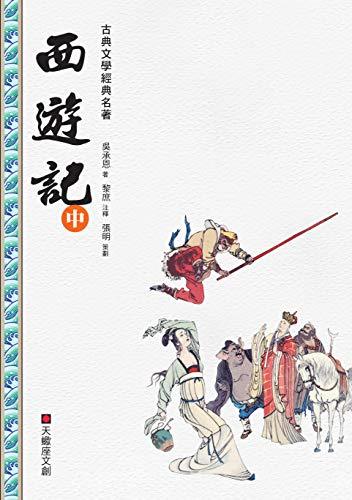
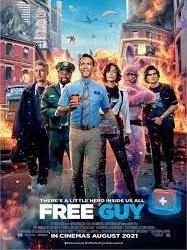

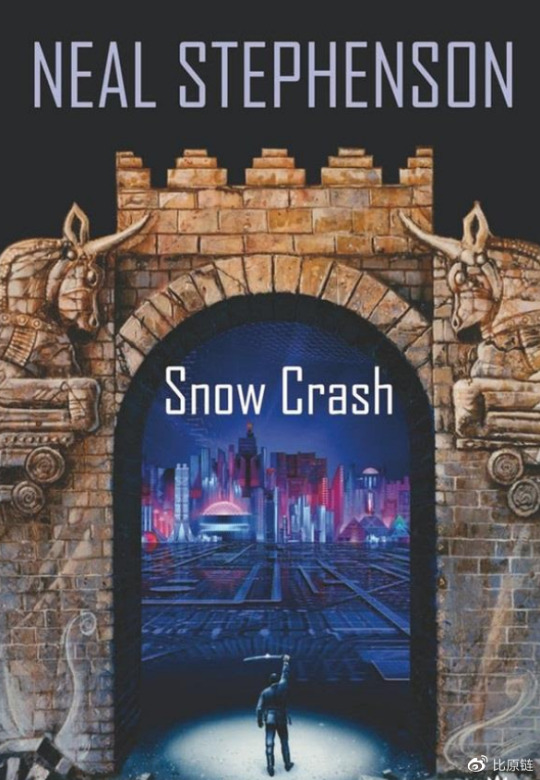
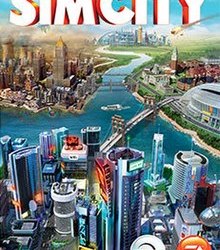
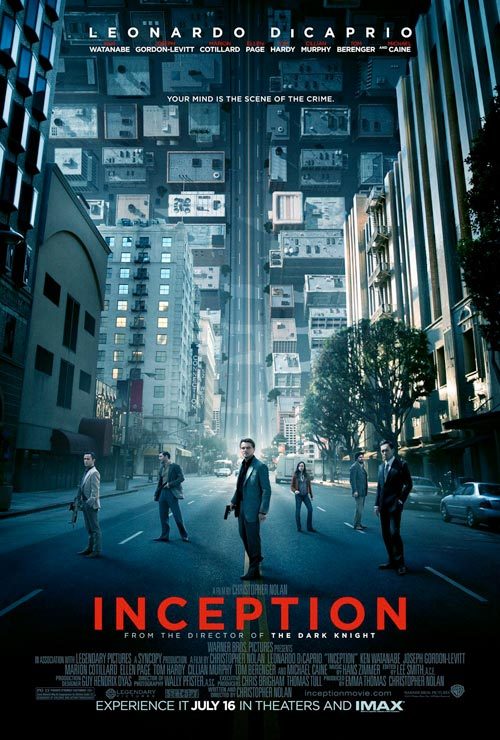
Rise Or Fall? The Complete Understanding Of Metaverse From The Philosophical, Cultural, Scientific And Social Perspectives
There are many recent popular films on ‘Metaverse’: Everything Everywhere All at Once, Doctor Strange in the Multiverse of Madness and Free Guy.
Technology company WayRay promotes its new kind of 'human world' as this: humankind has long been fascinated with a different reality—a different plane of existence, a different identity and a new perspective. To interact with a different reality might have been a dream decades ago, but now it is as real as the phone you are holding today. The technology is now mature enough, and we can all reach into the ‘Metaverse’.
What exactly is a ‘Metaverse’? It was said, “The meta-verse ('Meta’ + ‘Universe') is a virtual ‘reality space’ on the internet where a user can create a ‘human identity’ to live, interact and play, as well as experience things that he could always do in the real world." Metaverse will be another globe running parallel to and circumventing the existing world. The term came from a science fiction Snow Crash by Neal Stephenson in 1992 and the story depicted a virtual world on the internet that has buildings, roads, parks and shopping malls in which we could enjoy ‘a collateral life’.
It was pointed out Metaverse has 8 characteristics: (1) living under a virtual identity (2) getting along with new virtual ‘co-beings’ (3) instant and spontaneous movements by you commanding your extended identity in the virtual environment (4) an ‘as-if-real’ immersive experience in the virtual world (5) doing the great things which are humanly impossible for you to try in real life such as flying and roles transforming (6) the self-functioning economy of Metaverse by which you can become rich (7) vast supply of fascinating games and contents; and (8) co-building a ‘post-modern human civilization’.
Metaverse was made possible by scientific achievements. The advent of new technologies like 5G or 6G mobile network, Web 3.0, AI (Artificial Intelligence), VR (Virtual Reality), AR (Augmented Reality) and MR (Mixed Reality) solved many technical problems. The necessary equipment to operate Metaverse is expensive and includes special headset, personal computer, mobile phone, web, projection and kiosk. The ‘money’ transactions there involve innovative softwares like De-Fi (Decentralized Finance), IPFS (Inter-planetary File System) and NFT (Non-fungible Token). Mark Zuckerberg announced that ‘Meta’ (formerly known as Facebook) would soon file patent applications for a number of useful devices such as a pair of ultra-sensitive gloves to make 'Meta' bodily experience almost real. Can you afford all these?
Perhaps I am old, if not senile. The real world is already burdensome enough on a daily basis. My sure horror will come from the additional labour and toil associated with consuming a few hours per day on living in another artificial Metaverse. I get enough, if not more than enough, friends. Why should I meet more virtual people in the disguise of different identities and a lot of them may be crooks? I, nevertheless, envy the energetic ones who can handle two lives and two worlds.
I ask around to find out my friends’ interest on Metaverse. A said, “Communication technology simply makes people unnecessarily busy!” B said, “It’s cool! I want to be a powerful KOL or KOC in such a brave new world.” C said, “If I can make lots of money there, why not? I’m planning to buy some lands there.” D said, “I will be horrified when my 22-year-old girlfriend in Metaverse turns out to be an 80-years-old man!” E said, “Would it be lawful or immoral to attend a drug party in Metaverse?” F said, “How exciting it will be since I can hold a big concert there in the face of Michael Jackson?” G said, “I will transform myself into the most gorgeous girl there and attract loads of boyfriends!” H said, “I am afraid of sexual harassment. An English female beta tester was once groped by a stranger on Horizon Worlds!”
There is a famous philosophical story (莊周蝶夢)(Zhuang Zhou & Butterfly)of our ancient scholar Zhuangzi(莊子)(about 369 to 286 B.C.) that every Chinese knows. Zhuang dreamed that he was a butterfly. He suddenly woke up and found he was still himself, solid and human. He was puzzled and left us with his great theory of Taoism. “Am I really a man that dreamed of being a butterfly or whether I am a butterfly dreaming as a man?” This great Chinese thinker tried to challenge what we took as real might be unreal and what was unreal might be real. Perhaps he was the first one who inspired us on virtual reality thousand years ago. The French philosopher R Descartes (1596-1650) said, “No certain indications by which we may clearly distinguish wakefulness from sleep.” The development of Metaverse as the popular ‘second reality’ will lead more people to pursue a hot debate: can young people in the 23rd century choose to live in a virtual world of butterflies and refuse to live in a human world?
The other amazing Chinese ancient fairy tale protagonist is ‘The Monkey King’. It is based on the ancient story Journey to the West(西遊記) about a famous monk Xuanzang (玄奘) (602-664) who travelled on foot from China to India for the authentic Buddhist scriptures, escorted by Monkey King(孫悟空). This monkey was clever and rebellious. He acquired an immortal life and could transform him into seventy-two different identities in different situations at the same time. Riding clouds in the sky as a vehicle (Monkey King today will probably use Internet as his vehicle), he was able to travel 108,000 miles by a single somersault to meet friends. Would the Metaverse users dream of being a butterfly or Monkey King which were all old prophecies of ‘virtual reality’.
Many predict that your digital existence will become more important than your physical life. In the Metaverse, your life is fascinating with all that you can enjoy. But on earth, you may be lonely and miserable. Virtual life may be joyful. A real life can be sad. Nevertheless, the more humans lose themselves in a non-existent world, the more Artificial Intelligence technology will control us in future. I do not want to live in the virtual world because it will not give me a nice haircut! Do you? Happiness boils down to simplicity.
MLee
Chinese Version 中文版: https://www.patreon.com/posts/shi-kai-shi-huan-67507595?utm_medium=clipboard_copy&utm_source=copy_to_clipboard&utm_campaign=postshare
Movie “Everything Everywhere All at Once” Trailer HK https://youtu.be/E7qroZ-IulA Acknowledgement – A Really Happy Film
Movie “Free Guy” Trailer https://youtu.be/_vBOPZBPOjo Acknowledgement-20th Century Studios HK
What is Metaverse https://youtu.be/ZhD0FtWSiRo Acknowledgement-BBC News
Metaverse development in Korea https://youtu.be/ov_SCy-cKJc Acknowledgement-BBC News
Metaverse – Virtual Teresa Teng https://youtu.be/rN2PNMGtn2Q Acknowledgement-TBV News
Spent 100 days in Metaverse https://youtu.be/mufeRQYgqZc Acknowledgement-Ryan Trahan
Metaverse Song 《元宇宙》歌 https://youtu.be/qwWL58XcIYA Acknowledgement-Leslie Tsang
#Zhuangzi莊子#Xuanzang 玄奘#Monkey King孫悟空#Mark Zuckerberg#Neal Stephenson#Zhuang Zhou & Butterfly莊周蝶夢#Journey To The West西遊記#Free Guy#Snow Crash#Artificial Intelligence#Mixed Reality#Augmented Reality#Virtual Reality#Horizon Worlds#Decentralized Finance#Inter-planetary File System#Non-fungible Token#Everything Everywhere All at Once#Doctor Strange in the Multiverse of Madness
19 notes
·
View notes
Text
"Once I dreamed myself like a butterfly, floating like petals in the air, happy to be doing as I pleased, no longer aware of myself! But soon enough I awoke, and then, frantically clutching myself, Chuang Tzu I was!
I wonder: Was Chuang Tzu dreaming himself the butterfly, or was the butterfly dreaming itself Chuang Tzu?
Of course, if you take Chuang Tzu and the butterfly together, then there's a difference between them. But that difference is only due to their changing material forms!"
- 莊子 (Zhuangzi / Chuang Tzu)
Translation from Moss Roberts, can be found here with an explanation.


#I like that translation because it explains well the meaning in the last sentence#it also sounds pretty like a tale#quote#reflection#inspiration#butterfly#taoism
418 notes
·
View notes
Photo

The man on the mountain that has escaped abstractions lives on 8 grains of rice a day. 發. His mind is the sun. The light is all things.
Einstein in his office followed halfway halving his abstractions to pictured situations of thinking. Drop your words. . . Old Albert learned how the sun and its photon children worked. Zhuangzi is the sun, and everything, photon children.
2 notes
·
View notes
Text

Fate is the Hunter by Ernest K. Gann
1 note
·
View note
Text
「上誠好知而無道,則天下大亂矣。」
─ 莊子《莊子全集》
Zhuangzi 莊周 (莊子),為中國戰國中期著名思想家、哲學家、文學家,是道家學派的代表人物,老子思想的繼承和發展者,後世將他與老子並稱為「老莊」。
“As long as men in high places covet knowledge and are without the Way, the world will be in great confusion.”
— Zhuangzi, The Complete Works of Zhuangzi, Watson tr. (Ch 10)
95 notes
·
View notes
Photo

My name 黛 in #Xiaoyaoyou of #ZhuangZi #莊子 #逍遙遊 #莊子逍遙遊 given by my grandfather Royal Mr. Quan WEICHAO late, my father and son of my grandfather: Peng 鹏 @xue6903 is born in Guangzhou USA, 1950 November. God watches ALL RIGHTS RESERVED 💫🌟💫 (at Stanford University) https://www.instagram.com/p/ClFwLDGLYYI/?igshid=NGJjMDIxMWI=
0 notes